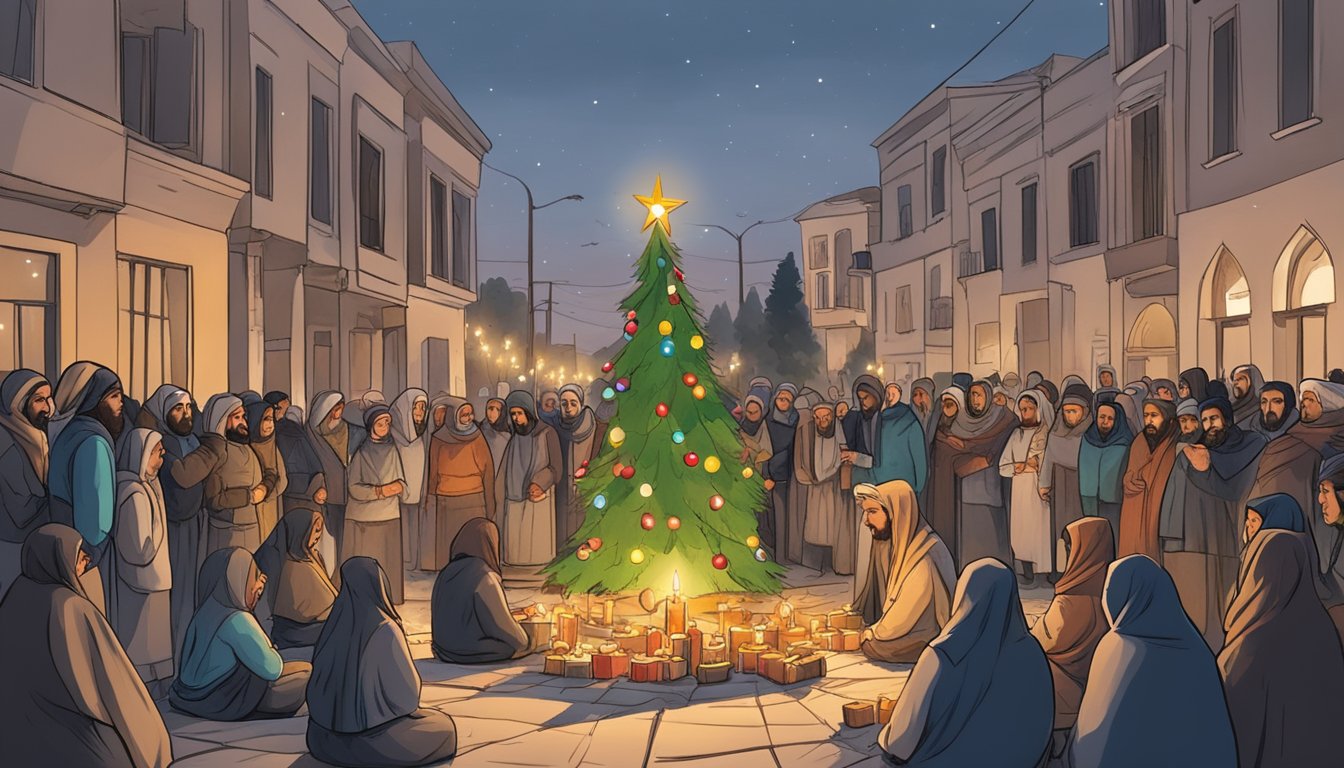Don’t Miss Out On This Unique Astrological Opportunity
Are you tired of spinning your wheels and getting nowhere? Simply put, you’re out of sync: you’re out of alignment with your astral configuration.
But: there’s a kind of map that can help you reclaim your alignment. Think of it as your own personal blueprint to success and happiness: a blueprint that will help you live your most amazing life.
Get started here.
On Christmas Eve, December 24, 2024, a wave of anger swept through the Duweilaah neighborhood of Damascus as Christian Syrians gathered to protest the recent arson of a Christmas tree in Al-Suqalabiyah, a town with a significant Christian population.
Eyewitness accounts revealed that footage had surfaced online, showing masked assailants setting the festive tree ablaze.
This shocking act spurred thousands to pour into the streets, demanding justice. Church leaders mourn tragic attack, condemning the act as a blatant attempt to spread fear and division among Syria’s religious communities.
Security forces were deployed to control the growing unrest, while local officials vowed to bring the perpetrators to justice.
Meanwhile, messages of solidarity poured in from Christian organizations worldwide, urging unity in the face of violence.
Concerns Over Safety
The burning of the tree has intensified anxieties surrounding the safety of Christians and other minority religions in Syria, particularly in the wake of former president Bashar al-Assad’s fall.
Many within the Christian community feel increasingly uneasy about their future under the influence of Hayat Tahrir al-Sham (HTS), an Islamist rebel group that has promised to safeguard their rights.
Despite these assurances, many remain skeptical of HTS due to its connections with extremist groups like Al-Qaeda, a relationship that complicates the community’s sense of security.
During the demonstrations in Damascus, protesters vocalized their concerns through chants that underscored their urgent call for the protection of Christian freedoms.
They articulated a sentiment shared by many: if they could not openly practice their faith, they would feel they no longer belong in their own country.
According to the Syrian Observatory for Human Rights, the individuals responsible for the attack on the tree were allegedly linked to foreign militants from Ansar al-Tawhid; however, HTS claimed to have arrested those accountable.
Demonstrations and Responses
Demonstrators took to the streets holding wooden crosses high, proudly displaying their Christian identity and unity through various slogans.
In response to the escalating tension, HTS officials made public assurances that those who destroyed the tree would face repercussions and pledged to erect a new Christmas tree in its place.
This incident echoed a prior event in Aleppo, where another Christmas tree was destroyed but eventually replaced by HTS.
Amidst the continuing conflicts, Ahmed al-Sharaa, Syria’s newly appointed leader, has been working diligently to present HTS as a more inclusive organization in a bid to alleviate foreign sanctions.
Ongoing Challenges
Moreover, HTS has confirmed that rebel factions will be integrated under the authority of the Syrian Ministry of Defense, stressing that all fighters will be held accountable under the law.
Despite these efforts, the Kurdish-led Syrian Democratic Forces remain a formidable force in the region and continue their operations unabated, presenting ongoing challenges to the evolving landscape of Syrian governance and security.
Source: Christianpost



